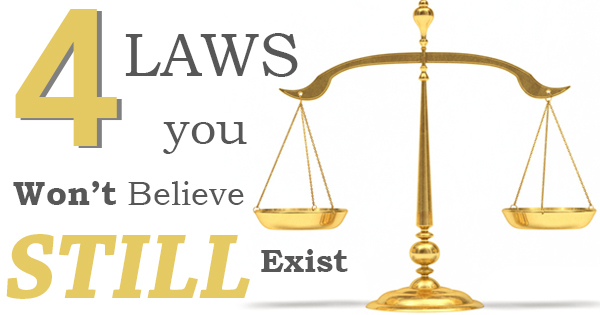
The United States’ democratic legal system might be used as a model for other countries across the world, but it itself was not an entirely original concept, having deep roots in other countries’ legal theories.
In fact, not only does the state of Louisiana still use some traces of French law, but the United States legal system developed primarily out of the English common law system. Just before the American Revolution, Sir William Blackstone published Commentaries on the Laws of England as a complete overview of English common law, which was crucial as the nation’s founding fathers founded the nation.
Considering this deep, prestigious federal legislative history, it’s weird to think that there is a legal statute still on the books in Maine that prevents citizens from keeping their Christmas lights up January 14.
If you think that’s strange, read on to find out what other weird legal statutes our law research found are still on the books.
No High Heels in Clint Eastwood’s Town
Carmel, California, where Clint Eastwood served as mayor from 1986 to 1988, has a legal statute banning any shoe with a heel whose height is in excess of two inches, or whose width is less than one-square-inch at the base. Supposedly, they made the legal statute law to prevent people from tripping in an effort to limit the city’s liability for trip and fall accidents. However, it’s not largely enforced.
Pinball Is an Adult Game in South Carolina
Any South Carolinian with a dream of one day being a pinball wizard better not touch a machine until they’re old enough to legally vote. That’s right, the Palmetto State has a legal statute forbidding anyone under the age of 18 from playing pinball.
Children Are Not For Sale
In Georgia, parents are not allowed to ship their children off to the circus. If any young child is found to be a professional gymnast, contortionist, circus rider, acrobat, clown or wire walker, parents could face one year in jail and a maximum fine of $1,000.
Although these legal statutes seem without any legislative intent, they had to have at least once served a purpose, and perhaps still do. If you want to know why those legal statutes were ever first put on the books, well, you’ll have to dig in to the legislative history yourself, but until then, share your thoughts on these bizarre laws in the comments.
